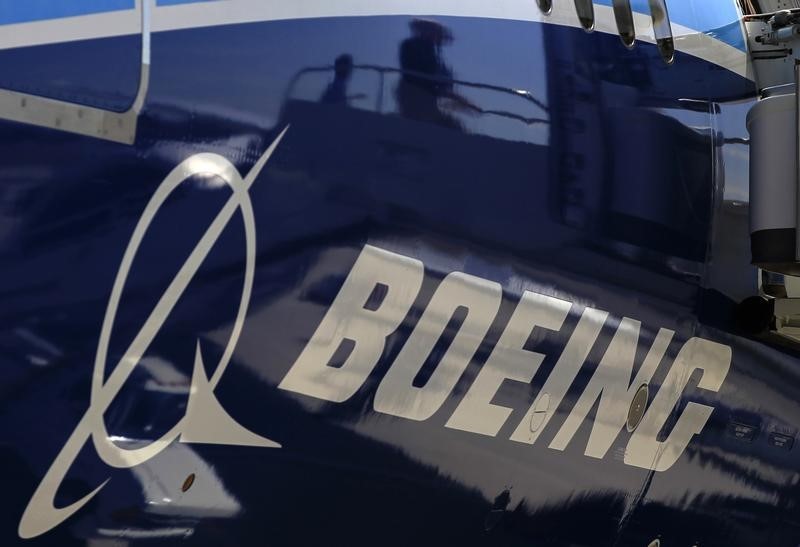Investing.com’s stocks of the week
By Andrea Shalal
WASHINGTON (Reuters) - Boeing Co (N:BA) said on Friday it will take a $536 million after-tax charge in its second-quarter results to deal with problems in the fuel system on the KC-46A aerial refueling tanker it is developing for the U.S. Air Force.
The Chicago-based company said the charge, which amounts to 77 cents per share, would result in lower earnings for the full year. It said added funds were needed to cover higher costs for development, certification and initial production of the tanker aircraft, while keeping the $49 billion, 179-aircraft program on track for initial deliveries of 18 tankers by August 2017.
This is the second charge Boeing has taken on the KC-46 tanker, one of its biggest defense development efforts, bringing the total after-tax charges to just over $800 million, with the pre-tax bill reaching nearly $1.3 billion.
The world's biggest commercial planemaker, which is also a major defense contractor, beat European rival Airbus (PA:AIR) to win the contract in 2011, capping a nearly decade-long saga that saw two senior former Boeing executives serve prison terms for violating federal ethics rules.
Boeing had long rejected U.S. Air Force estimates that it would cost the company over $1 billion more than expected to develop and test the refueling planes, but unexpected problems over the past year changed the situation, analysts said.
Brigadier General Duke Richardson, who runs the program for the Air Force, said he remained optimistic that Boeing would meet its delivery targets and that the first fully integrated KC-46 tanker would fly in September, as planned.
"While we have more heavy lifting coming up, we believe it is achievable and do not see any technical showstoppers," he said in a statement.
Boeing must absorb the additional costs of development of the program since U.S. government costs are capped at $4.9 billion under a fixed-price contract.
The company's shares were down 1.1 percent at $146.89 in afternoon trading on the New York Stock Exchange.
Boeing said it would adjust its earnings per share outlook when it reports results on July 22, but said its outlook for revenue and cash flow would remain unchanged.
The tanker investment will have a cash impact this year, but Boeing "will make up for it in other ways" to maintain its full-year cash outlook, said company spokesman Bernard Choi.
Ken Herbert, an analyst at Canaccord Genuity Inc, who rates Boeing a buy with a $165 price target, said the charge was not a surprise, and investors were relieved that Boeing did not announce any further charges or problems with its 787 commercial airliner program. Losses on the 787 continue to rise, though the pace is slowing as Boeing improves the production system.
Loren Thompson, an analyst with the Virginia-based Lexington Institute, said Boeing knowingly underestimated its KC-46 development costs to prevent Airbus from winning the deal, but the losses were larger than the company initially expected.
Dennis Muilenburg, Boeing's former defense chief who took over as chief executive on July 1, said the longer-term outlook for the program remained upbeat, and it should turn a profit once the development phase is completed.
Boeing said the extra spending was needed to fix the tanker's integrated fuel system, which delivers fuel to the aircraft itself and is also used for refueling other aircraft in mid-air after problems emerged during testing.
It said testing of non-fuel system components is 90 percent complete, and it is making progress on its overall ground and flight test program.
Boeing has forecast a long-term $80 billion market for refueling planes. Airbus beat Boeing to win a big South Korean tanker competition earlier this month.
